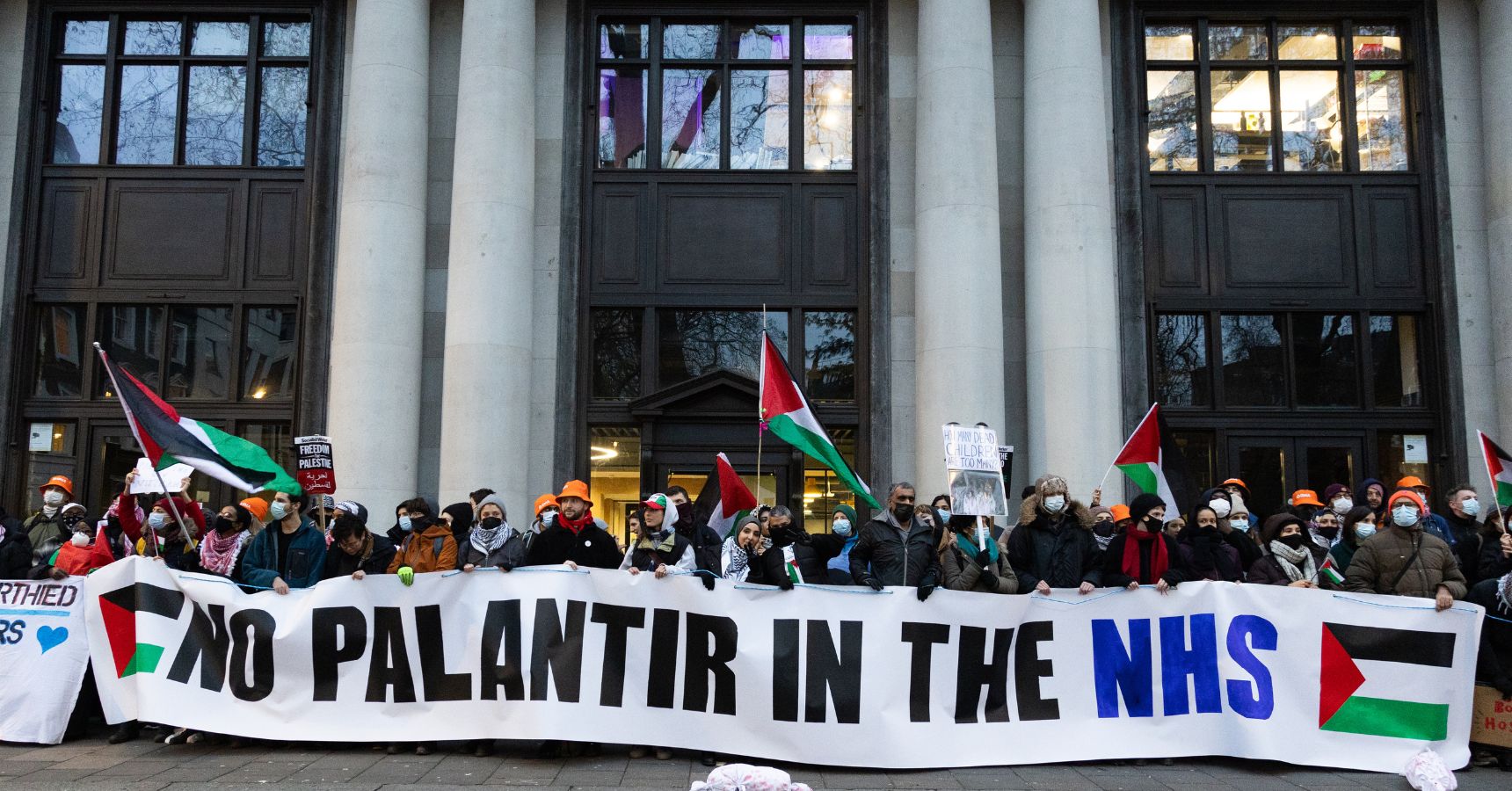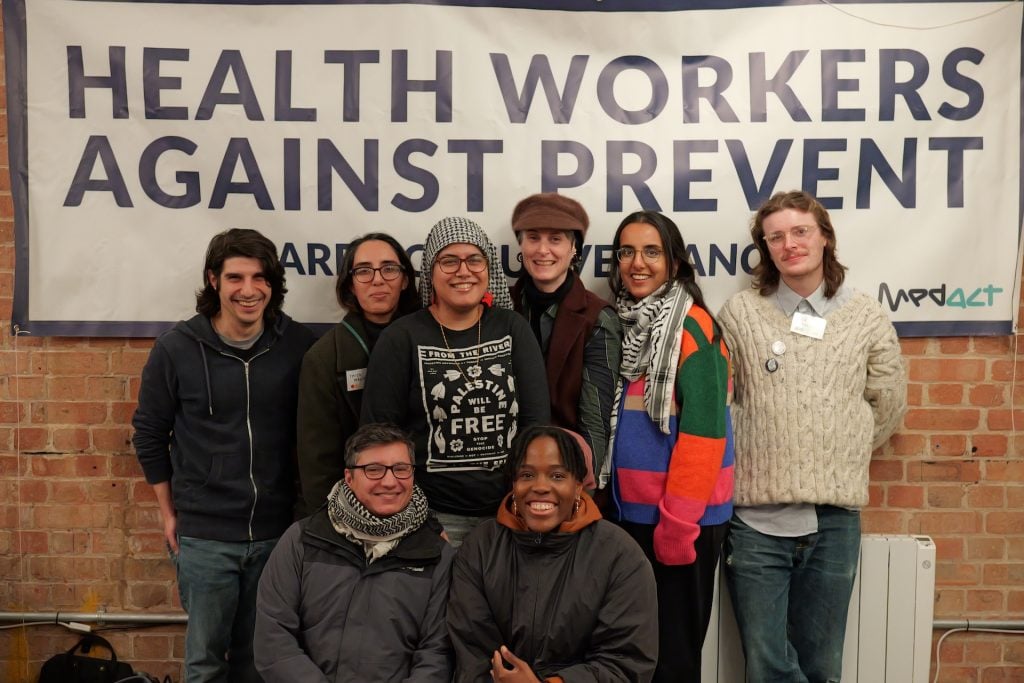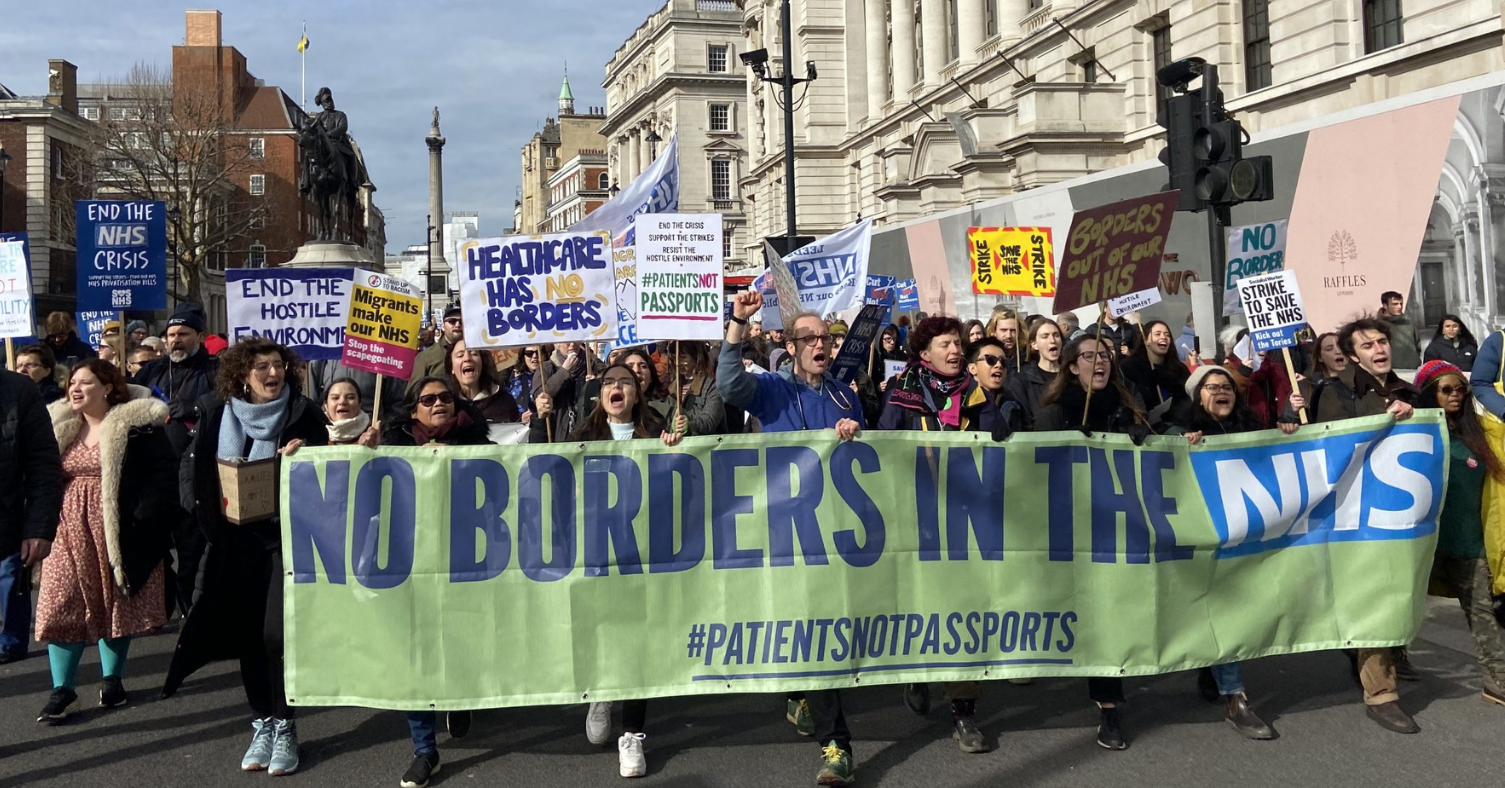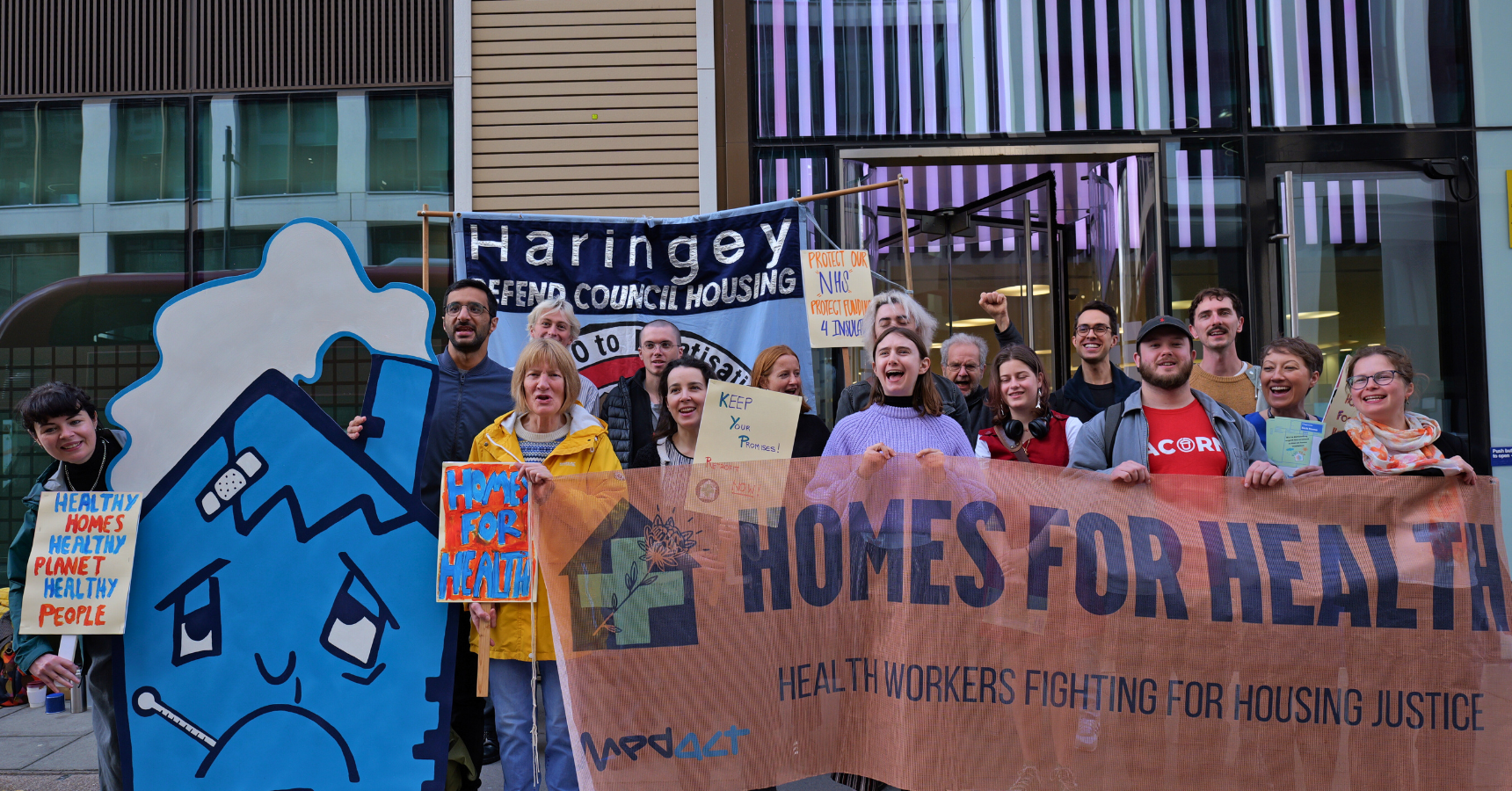Medact’s Organisational Strategy 2025–2030: Priority Area

Problem:
State violence is a public health crisis. Internationally, we are witnessing worsening wars with catastrophic health consequences, states threatening the use of nuclear weapons and international legal frameworks unable to prevent genocidal conflicts – all while UK military spending increases, fuelling war and strengthening the military industrial complex. Nationally, we are witnessing expansions in militarised policing, criminalisation, surveillance and securitisation practices within and beyond sites of healthcare. Together, these practices reinforce each other in upholding systems of violence that primarily target minoritised and racialised communities.
Health worker role:
Health workers are increasingly implicated in harms caused to minoritised and racialised communities through policing, surveillance and securitisation practices in health services, legitimised by counter-terror, austerity and government-led public health narratives. Equally, health workers are the target of state violence, both whilst working in conflict zones and in their day-to-day lives as workers and patients in the health service. Health workers are able to stand with their colleagues and patients facing these harms to resist, disrupt and bring an end to state violence. The health community is highly trusted and has an important role to play in leading resistance to war, militarised violence and securitisation.

Over the next 5 years Medact will:
- Mainstream abolitionist public health practice in the UK, identifying key policy targets to turn abolitionist principles into practice
- Expose securitisation in the NHS and challenge these practices alongside patients
- Remove financial support for nuclear weapons through bank and insurance divestment campaigns
- Develop sites of collective care and mutual aid that build community power between health workers and patients
Medact’s impact:
- Key abolitionist policies and practices will be adopted in the UK, across the NHS or in pilot sites
- Securitisation practices are better understood, and patient and health worker voices shape national discussion
- Nuclear weapons are seen as risky and unethical investments, decreasing public acceptability and pressuring UK government to commit to nuclear non-proliferation
- Health workers and impacted communities build deeper connections and take action together to reduce health inequity
Climate Justice:
The global military sector is one of the largest C02 emitting industries, relying heavily on fossil fuel use and energy intensive production and supply lines. Throughout our work we will draw attention to the climate impact of the military industrial complex, alongside the untold human and ecological destruction wrought through war and conflict.


